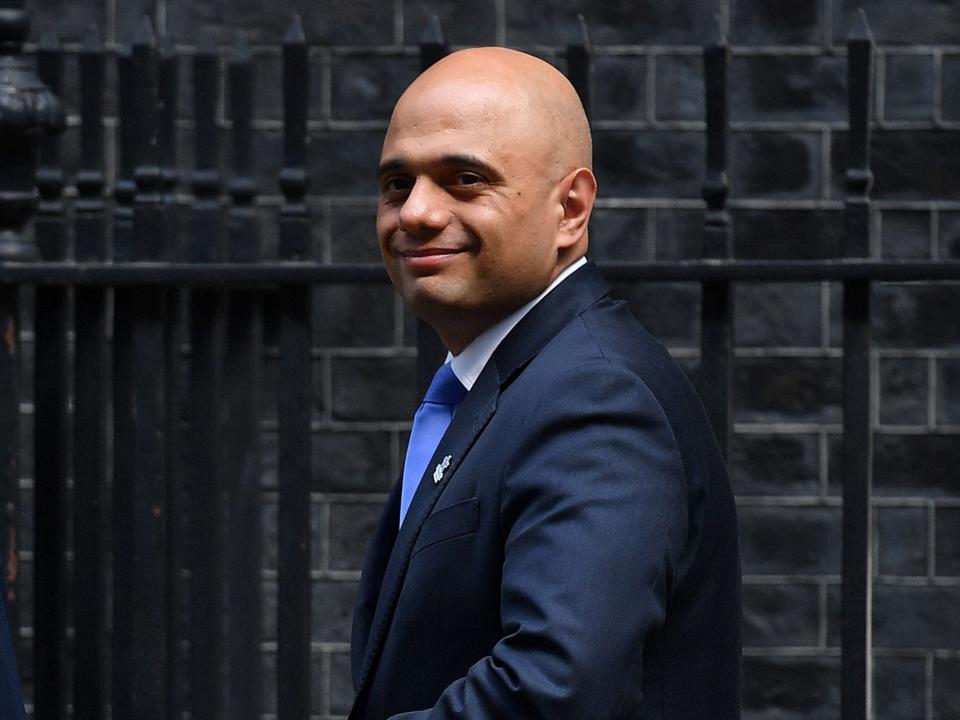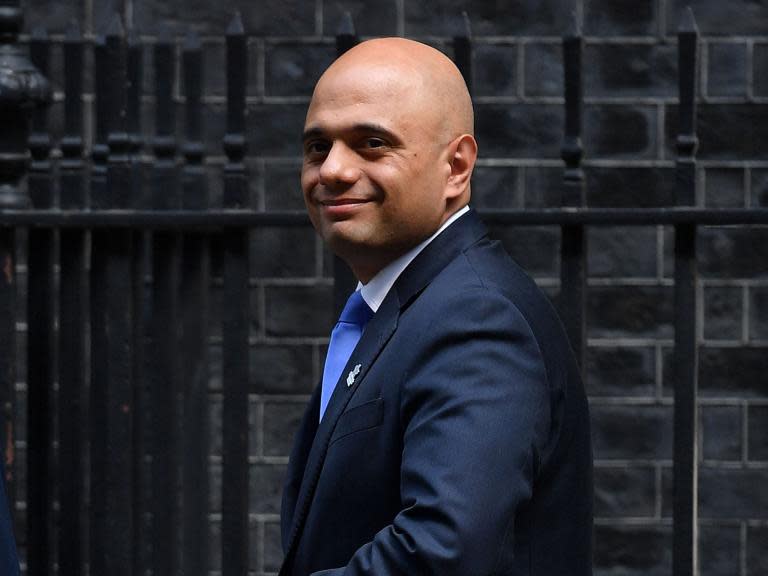Brexit: Sajid Javid warns EU against 'reckless' move to weaken security ties
Sajid Javid has warned the European Union that it would be "wrong and reckless" to weaken security ties with the UK after Brexit.
Pointing to splits in the EU, the home secretary said most European ministers do not support the "hard line" approach taken by Brussels on security cooperation, as they rely heavily on British intelligence to thwart terror attacks.
Mr Javid said the European Commission wanted to treat the UK as a "third country" but many of his counterparts have told him privately that they oppose such a move.
Security has become a key factor in the Brexit talks, as questions marks hang over the UK's future use of vital crime-fighting tools such as the European Arrest Warrant, and Europol, the EU's law enforcement agency, both of which have been highlighted by senior police and counter-terror figures.
Tensions have ramped up over security cooperation after it emerged the EU was considering excluding Britain from its Galileo satellite navigation system - prompting fury in Whitehall.
In his first security speech since becoming home secretary, Mr Javid said: "We have always been absolutely clear that although we voted to leave the European Union, we are as committed as ever to European security.
"We want, and we need, a deep and special security partnership with the EU after we leave. And the EU needs it too.
"There is not a single European interior minister who wants to reduce the level of co-operation on security that we have now.
"When the British people voted to leave the European Union, they were not voting for us to stop working with our European allies to keep everyone safe.
"So it would be wrong and reckless for anyone to advocate any unnecessary reduction in this co-operation."
Theresa May came in for criticism from EU leaders when she appeared to use security matters as a bargaining chip in her Article 50 letter, which formally triggered the two-year Brexit countdown.
However the government has changed its stance and become vocal in its efforts to secure a bespoke partnership after Britain leaves the bloc.
Mr Javid said the EU was "not speaking with one voice" on security, as the commission had a "hard line" at the moment on several matters as part of the negotiations.
He told the audience in London: “I’ve met with a number of European interior ministers...and every single one that I’ve met, they’ve absolutely agreed, they not only want the cooperation to continue as it is but they also are open to how can we make it even deeper.
“One of the reasons is they rely so much on the intelligence information we provide them, and there’s not going to be a single European interior minister that would want to explain - if we weren't cooperating as we did today - after an attack how it could have been stopped if the British had still been involved, perhaps with some secret intelligence.
“And obviously the benefits are both ways. We all benefit and that is very easy to see."
Mr Javid said he was "quite confident" that Britain would continue to work with Brussels after it leaves the bloc on security matters.
The comments came as he launched the government's refreshed counter-terror strategy in response to what he described as a "step change" in the extremist threat.
Under the plans, security services will share intelligence with local councils, government officials and the police to speed up the response to thwarting terror attacks.
Mr Javid also announced plans to:
* Firm up proposals to increase maximum sentences for some offences, such as repeatedly viewing terror content online
* Outline a new approach to managing the rising threat from extreme right-wing violence
* Set out steps to enhance the use of data to track suspects by police and MI5
* Emphasise the need for collaboration with the private sector on tackling terrorist material online
Security services have warned that the Islamist terror threat will remain at its current heightened level for at least another two years, while the risk from extreme right-wing terrorism is on the rise.
The Home Office revealed that 12 Islamist and four extreme right-wing attack plots have been foiled since March, while MI5 and police are running more than 500 live operations involving roughly 3,000 "subjects of interest" at any one time.
More than 20,000 people who have previously been investigated could also pose a threat.

 Yahoo News
Yahoo News 

